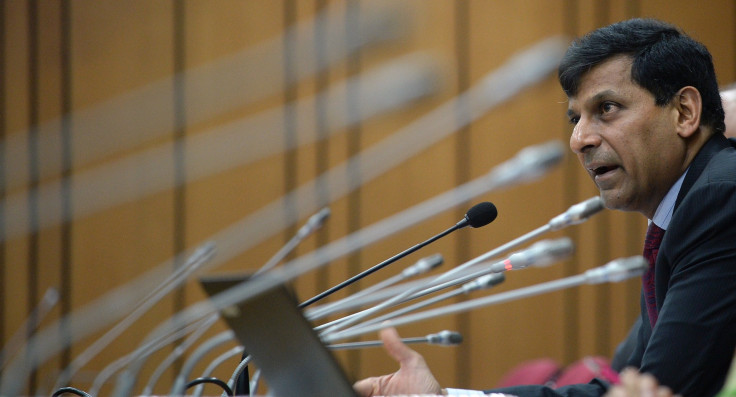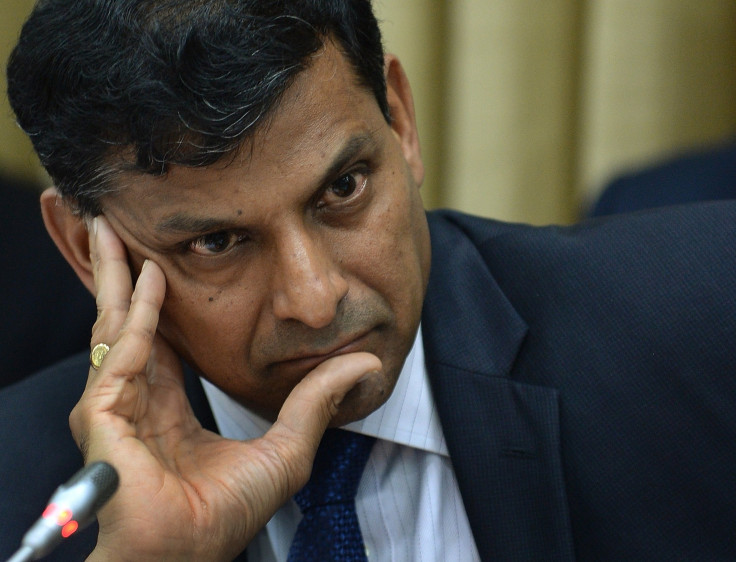Raghuram Rajan, India’s Central Bank Governor, Not To Seek Second Term In Surprise Move

In a surprise move, the governor of India’s central bank said Saturday that he will not seek a second term and step down once his three-year term ends in September.
Raghuram Rajan, 53, is a former chief economist at the International Monetary Fund. He is held in high esteem by policymakers and investors at home and abroad for overhauling the way the Reserve Bank of India (RBI) operates.
India's economy is growing at an impressive 7.5 percent making it the world’s fastest-growing major economy, ahead of China’s growth in the January-March quarter.

Rajan was appointed three years ago as the RBI's governor by the previous Congress party government that was led by another Oxford-educated economist Manmohan Singh. However, Prime Minister Narendra Modi's Bharatiya Janata Party has recently criticized Rajan for adopting a hard-line stand against inflation despite pressure to cut interest rates to push India's economic growth.
Subramanian Swamy, a legislator from Modi’s government and former Harvard economist, tweeted his delight over the fact that Rajan had decided to go back to academia in the United States. Swamy had earlier described Rajan as “mentally not fully Indian as he holds a U.S. green card.”
R3 has said he will go back to US. Whatever figleaf he wants for hiding the reality we should not grudge it. Say good bye!
— Subramanian Swamy (@Swamy39) June 18, 2016
Rajan has been on leave as a professor of finance at the University of Chicago since becoming head of the Indian central bank. In 2005, he had correctly predicted the impending 2008 recession, the worst financial crisis since the 1930s Great Depression.
In a letter to RBI staff, Rajan reportedly wrote: “While I was open to seeing these developments through, on due reflection, and after consultation with the government, I want to share with you that I will be returning to academia when my term as Governor ends on Sept. 4, 2016.”
“I will, of course, always be available to serve my country when needed,” he added.
Rajan also said, “We have also been able to cut interest rates by 150 basis points after raising them initially.” According to government data, India's inflation rate reached a record low of 3.69 percent in July last year following an all-time high of 11.16 percent in 2013.
The governor was known to have a good working relationship with Modi and many of his key accomplishments came in close collaboration with the present government.
Finance Minister Arun Jaitley said the government appreciated Rajan's work and would soon announce a successor.
Dr. Raghuram Rajan has announced his intention to go back to academics at the end of his current assignment.(1/2)
— Arun Jaitley (@arunjaitley) June 18, 2016
The Government appreciates the good work done by him and respects his decision. A decision on his successor would be announced shortly.(2/2)
— Arun Jaitley (@arunjaitley) June 18, 2016
“This is a negative surprise for India,” Tirthankar Patnaik, a Mumbai-based economist at Mizuho Bank Ltd., told Bloomberg. “In India’s impending macro scenario, Rajan’s presence would have been really, really important. Without him, things are likely to be much more difficult.”
Reuters reported a senior government official as saying that there were seven candidates on an initial long list to replace Rajan. The names included RBI Deputy Governor Urjit Patel and Arundhati Bhattacharya, who is the chair of State Bank of India, the country's largest bank. Others are mostly veterans of the RBI, the Indian civil service, the International Monetary Fund and the World Bank.
With this decision, Rajan would also become the first RBI governor since 1992 to depart after a single term.
© Copyright IBTimes 2024. All rights reserved.






















